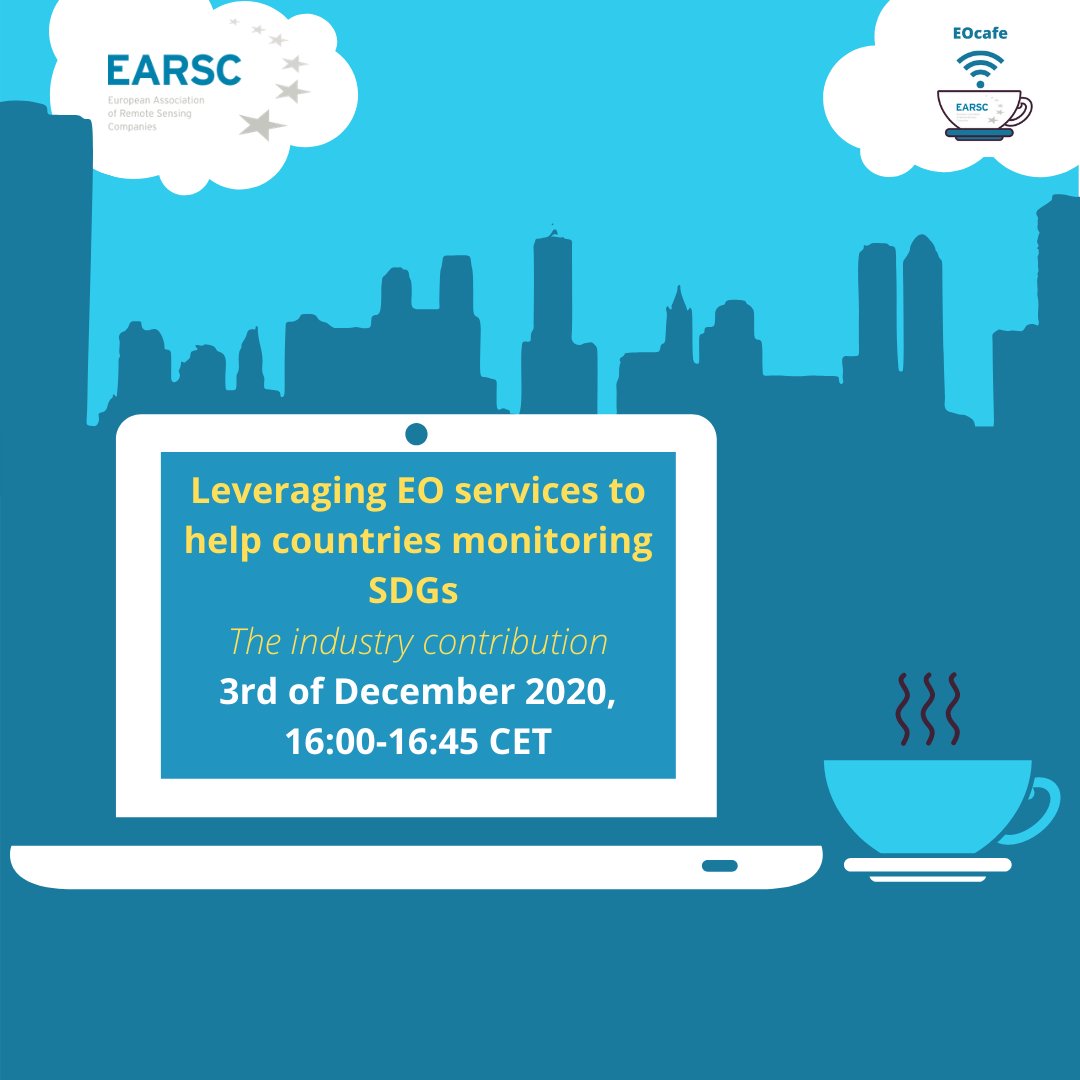Information:
The 2030 Agenda for Sustainable Development provides a universal development agenda for all countries and stakeholders to use as a blueprint of actions for social inclusion, environmental sustainability and economic development. The agenda is driven by seventeen Sustainable Development Goals (SDGs), associated Targets, and a Global Indicator Framework. Collectively, these elements enable countries and the global community to measure, manage, and monitor progress on economic, social and environmental sustainability. The European Earth Observation (EO) private sector can help achieve the SDGs by providing critical information on agricultural and rural development, water resource management, climate resilience, forest management, disaster risk reduction, coastal management, energy and extractives, urban development, and many other sectors.
The EO value added industry can play an insightful role in supporting countries defining their targets, planning their interventions, monitoring progress and reporting to the Global Indicator Framework, which will collectively contribute toward achieving the SDGs.
Benefits for countries includes, among others:
- upgrading efficiency and effectiveness of public services,
- evaluating impacts across sectors and regions,
- monitoring change over time in a consistent and standardized manner,
- increasing transparency, improve accountability,
- facilitating better information-sharing within government,
- improving the cycle stages (plan, do, check, act, review).
